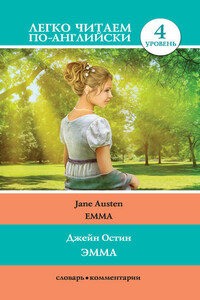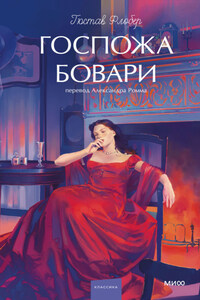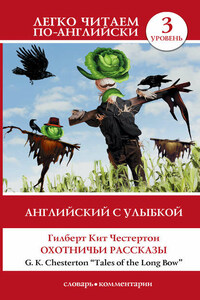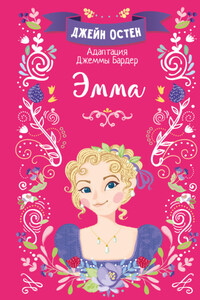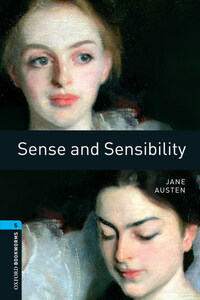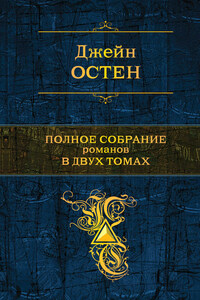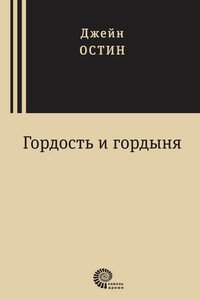Emma Woodhouse[1], handsome, clever, and rich, with a comfortable home and happy disposition, had lived nearly twenty-one years in the world with very little to distress or vex her. She was the youngest of the two daughters of a most affectionate, indulgent father; and had, in consequence of her sister’s marriage, been mistress of his house from a very early period. Her mother had died long ago.
Sixteen years had Miss Taylor[2] been in Mr. Woodhouse’s family, less as a governess than a friend, very fond of both daughters, but particularly of Emma. Between them it was more the intimacy of sisters. Then Miss Taylor married. It was Miss Taylor’s loss which first brought grief. It was on the wedding-day of this beloved friend that Emma first sat in mournful thought. The wedding was over, and the bride-people had gone, and Emma’s father and herself were left to dine together. Her father had gone to sleep after dinner, as usual, and she had then only to sit and think of what she had lost.
Mr. Weston – Miss Taylor’s husband – was a man of unexceptionable character, easy fortune, suitable age, and pleasant manners; but it was a black morning for Emma. She recalled Miss Taylor’s kindness – the kindness, the affection of sixteen years – how she had taught and how she had played with her from five years old – how she had devoted all her powers to attach and amuse her.
How was she to bear the change? – It was true that her friend was going only half a mile from them; but Emma was aware that great must be the difference between a Mrs. Weston, only half a mile from them, and a Miss Taylor in the house. Emma dearly loved her father, but he was no companion for her.
Mr. Woodhouse had no activity of mind or body, he was a much older man in ways[3] than in years; and his talents could not have recommended him at any time[4].
Emma’s sister Isabella[5], being settled in London, only sixteen miles off, was much beyond her daily reach.
Highbury[6], the large and populous village, to which Hartfield[7] belonged, afforded her no equals[8]. The Woodhouses were first in consequence[9] there. All looked up to them. She had many acquaintance in the place, but not one among them who could be accepted in lieu of[10] Miss Taylor for even half a day. It was a melancholy change; and Emma could not but sigh over it. Her father was a nervous man, easily depressed; hating change of every kind. Matrimony, as the origin of change, was always disagreeable; and he was by no means yet reconciled to his own daughter’s marrying, nor could ever speak of her but with compassion. He was very much disposed to think Miss Taylor had done as sad a thing for herself as for them, and would have been a great deal happier if she had spent all the rest of her life at Hartfield. Emma smiled and chatted as cheerfully as she could, to keep him from such thoughts; but when tea came, it was impossible for him not to say exactly as he had said at dinner,
“Poor Miss Taylor! – I wish she were here again. What a pity it is that Mr. Weston married her!”
“I cannot agree with you, papa; you know I cannot. Mr. Weston is such a good-humoured, pleasant, excellent man, that he thoroughly deserves a good wife; – and you would not have had Miss Taylor live with us for ever, when she might have a house of her own?”
“A house of her own! – But where is the advantage of a house of her own? Our house is three times as large.”
“We shall be going to see them often, and they will be coming to see us! – We shall be always meeting! We must begin; we must go and pay wedding visit very soon.”
“My dear, how am I to get so far? Randalls[11] is such a distance. I could not walk half so far.”
“No, papa, nobody thought of your walking. We must go in the carriage, to be sure.”
Emma hoped, by the help of backgammon[12], to get her father tolerably through the evening. The backgammon-table was placed; but a visitor immediately afterwards walked in and made it unnecessary.
Mr. Knightley[13], a sensible man about seven or eight-and-thirty, was not only a very old and intimate friend of the family, but particularly connected with it, as the elder brother of Isabella’s husband. He lived about a mile from Highbury, was a frequent visitor, and always welcome, and at this time more welcome than usual, as coming directly from their relatives in London. He had returned to a late dinner, after some days’ absence, and now walked up to Hartfield to say that all were well there. It animated Mr. Woodhouse for some time. Mr. Knightley had a cheerful manner, which always did him good; and his many inquiries after “poor Isabella” and her children were answered most satisfactorily. When this was over, Mr. Woodhouse gratefully observed,
“It is very kind of you, Mr. Knightley, to come out at this late hour to call upon us[14]. I am afraid you must have had a terrible walk.”
“Not at all, sir. It is a beautiful moonlight night.”
“But you must have found it very damp and dirty.”
